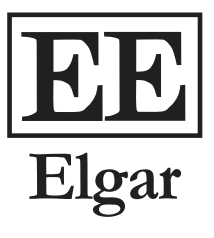
Our law editors and all @Elgar_Law want to thank everyone who got involved in our first Twitter chat.
We wanted to create an opportunity for early career researchers (ECRs) who may be looking to start building their monograph publications list and are a little stumped with where to start, who to work with and how everything works at Elgar.
We have compiled all of the Q&A’s here for ease of reference. If anyone has any further questions or wants to know more about publishing, please don’t hesitate to get in touch.
Q1. What credentials are must-haves in order to get published?
First of all if it’s a book based on a PhD thesis it needs to have been successfully defended. Then some careful thought needs to go into how the book can be positioned to appeal to an international market.
Q2. Regarding doctoral research work: Do you prefer a final manuscript, i.e. thesis plus additional chapters, or a book proposal on the basis of the thesis plus a short description of the additional chapters?
We would say that it is always best to send through a detailed proposal form, in addition to the thesis, outlining the changes you are intending to make to ensure it is transformed into a monograph.
Q3. How long does the review process will take?
Our aim is to come to a publishing decision within two to four weeks.
Q4. Where I work, it is commonplace for PhD students to publish, prior to the defence, their thesis in the University press as a monograph. Do you accept book proposals for manuscripts that have already been published in such a manner?
If the thesis is publicly available online then that could be problematic, but it’s a question of the degree to which the book will be transformed from the thesis. If it is based on the thesis but substantially different this could be OK. Some unis /countries require a print copy of the thesis to be ‘published’ in limited form for the university library and a small circulation, but provided the thesis is not commercially available then that would not preclude us considering it.
Q5. Why is the peer review process so important?
Peer review plays a crucial role of in the academic publishing process. See our blog post: Whither Peer Review? A Word of Thanks by Luke Adams, head of law publishing here at Elgar.
Q6. How detailed does a proposal need to be?
The more detail you give, the better quality the reviewer feedback is likely to be. Imagine that you are the reviewer and think about what you would want to see to make a meaningful assessment.
Q7. How about the duration and procedure of the review and editing process to finalize the manuscript?
It very much depends on the individual case (how different the final manuscript is to the thesis that was reviewed at proposal stage). If the book manuscript has been refined with the assistance of another scholar, it may not need a lengthy second review. Once the final manuscript is complete and satisfactorily assessed, then of course it would go through our thorough editing processes. See these videos on our website for more information about our production process.
Q8. I am preparing an initial feeler email to be sent to publishers. What are the most important factors in persuading the editors to allow me to send them some chapters of the thesis for an initial review?
Our suggestions would be to research the publishers to begin with, and see if your proposed work fits in with their list. Show them that you have thought about commercial considerations too i.e., where it fits in the market.
Q9. What sorts of changes do you expect to see between a thesis (in its finished form) and a good monograph?
Reassess the readership. Whilst dense technical detail may be appropriate for the thesis, often being more succinct works better for a book. Take out lengthy methodologies. Consider a complete restructure to put the core arguments up front.
Q10. Unsure about copyright?
We’ve put together this 5-minute guide to copyright which answers many of the frequently asked questions.
Q11. Why should I work with Elgar Publishing?
We are a leading independent publisher. We pride ourselves on our author service (from commissioning to final publication). We publish law books with strong comparative/international perspectives, and we cover the breadth and depth of legal studies. See this video on our website for more information about our law publishing.
Our authors offer some words of wisdom for ECRs in this article on our blog and a few examples of really good theses, transformed into excellent monographs can be found on our website here, here and here.
We are at a lot of conferences throughout the year, so if you’d like to chat in person do pop by the Edward Elgar stand and we’ll be happy to answer any questions you might have, or feel free to drop us a line!
Iram Satti
Commissioning Editor for the Academic Law list


Leave a Reply